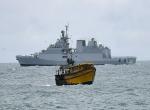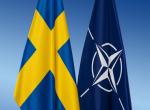India’s core foreign policy challenges in 2011 will be no different than in 2010, but we enter the New Year with a somewhat strengthened diplomatic hand. Coincidentally, leaders of all P-5 countries visited India in 2010 in quick succession and all, barring China, gave us political support in varying degrees on Pakistan related terrorism issues, UNSC permanent membership and our inclusion in various non-proliferation regimes, in recognition of our growing international stature on the back of our economic performance. Despite more international responsiveness to our concerns, 2011 will not produce any major breakthroughs in resolving our outstanding problems.
In 2011, the terrorist threat facing us will not lessen, as appeals to Pakistan and pressure on it to eradicate terrorism from its soil have not yielded any significant result. Pakistan is delaying bringing to justice those involved in the Mumbai terrorist attack, the jihadi organizations are not being suppressed, even as local extremists stage at home brutal terrorist attacks incessantly. With growing instability in Pakistan, the uncertainties surrounding Afghanistan’s future, Pakistan’s destabilizing strategic ambitions there, its unyielding hostility toward India, the inability of the US to compel it to abjure reliance on terrorism to further its political interests etc, 2011 will not bring relief to India on terrorism.
Other factors too lower expectations. The India-Pakistan dialogue is stalemated, with India proposing a step by step engagement on all outstanding issues and Pakistan insisting on the centrality of the Kashmir question. Pakistan’s rhetoric against India has become more shrill in recent months, with Foreign Minister Qureshi spurning the invitation to visit India unless his terms on Kashmir are accepted. Unless India yields in some measure- which would be unfortunate- it is not clear how the stalemate can be broken. Meanwhile, the Centre’s Kashmir interlocutors, with an unclear mandate, are eroding India’s long standing positions on the Kashmir issue to Pakistan’s advantage.
The disconnect between our external security needs and domestic political rivalries, if continued, will further damage prospects of prodding Pakistan on the terrorism issue in 2011. Seeking to equate jihadi terrorism with “saffron” terrorism and drawing attention away from the external source of the terrorist menace to the country by stoking controversies over internally inspired terrorist attacks plays Pakistan’s game by giving it propaganda fodder to mislead world opinion and its own public on the reality of its culpability in promoting terrorism against India.
President Obama is committed to a draw-down of US forces in Afghanistan beginning in July 2011. Even a token reduction will be construed by Pakistan and its accomplices that their curent strategy is yielding gains. Unless the US puts sticks ahead of carrots in dealing with Pakistan- which it seems disinclined to do as it cannot find an answer to Pakistan’s consummate tactics in offering cooperation and simultaneously supporting the depredations by Afghan Taliban groups, which only underscores, in turn, the value and the indispensability of this cooperation in US eyes- we will remain dangerously exposed to the uncertainties of the regional situation. We may have the goodwill of the Afghan people, even in the Pashtun belt, but this will not guarantee protection of our long term interests in Afghanistan unless its eventual power structures reflect the weight of majority public sentiment.
Chinese Premier Wen Jiabao’s 2010 visit to India does not augur an easier India-China relationship in 2011. China is steering India toward subscribing to its strategy in dealing with the bilateral relationship. It intends to keep the border issue alive as a pressure point, under cover of which it has begun to question India’s sovereignty over J&K and consolidate further its relationship with Pakistan, including its presence in POK, for vital resource-linked connectivities to the Arabian Sea, Afghanistan and Central Asia.
While keeping its political options toward India open, it seeks to disarm Indian resistance by shifting the focus to economic ties, for which it is mobilizing powerful Indian private sector interests. Thus, Wen Jiabao comes to India with hundreds of businessmen, but tells us that it will not be easy to completely resolve the boundary issue and that we should be prepared for a long wait for this. With the stapled visa issue China has opened a breach in India’s sovereignty over Kashmir, for it to exploit to the degree it needs. India has to counter it by opening a similar breach in 2011 in China’s position on Tibet and Taiwan.
Our problems elsewhere in our neighbourhood will continue in 2011. India has interest in unblocking the current impasse in Nepal, but how to find a balance between self-interest and respect for Nepalese sovereignty in what we do vis a vis a prickly neighbour under insidious Chinese influence. Similarly, to what degree can we channel the truimphalist mood in Sri Lanka in the direction of a constructive, long-term solution to the ethnic issue that stabilizes Sri Lanka internally, as well as its relations with us. Here too we have to contend with the Chinese factor.
We need to rapidly progress projects in Myanmar that promote land connectivity through that country to Thailand and beyond as an integral part of our Look East policy, once again keeping China’s challenge in mind. With Iran relations took a downward turn in 2010 despite our desire to engage it for energy security and other reasons. UN/US/EU sanctions, Iran’s nuclear ambiguities and the provocative statements of Iran’s Supreme Leader on Kashmir have been the cause. Our relations with Bangladesh, happily, present a reasonably positive prospect for 2011.
On the larger international canvas, 2011 should see a steady consolidation of our ties with the US, but without any dramatic developments. The next round of the Strategic Dialogue at Foreign Minister level will be held to oversee the implementation of the existing wide-ranging agenda, though misgivings about US policies in our region will not disappear.
Prime Minister’s visit to Russia in 2011 for the annual summit should consolidate the positive momentum imparted to bilateral relations during President Medvedev’s recently concluded visit. German Chancellor Merkel’s expected visit to India in 2011 should boost relations with another European power after a very successful visit here by the French President.
The support India has received for its permanent membership of the Security Council during recent visits will not get translated into concrete results any time soon. Meanwhile, how India conducts itself as a non-permanent member in the next two years will be under scrutiny by the US in particular, with India being expected to be “responsible”- a euphemism for aligning itself with western positions.
India, with its impressive growth rates, will continue to have an important voice in the G-20 in 2011. On Climate Change our recent Ministerial level policy excursions that seem to be consensus-breaking will not, hopefully, impose unwarranted costs on us eventually. Much will be said in 2011 on our civil nuclear liability legislation that has irked our would be nuclear power partners.
Ultimately, a strong, purposeful foreign policy has organic links with a commitment to good domestic governance. A key challenge for us in 2011 and beyond is that of wielding a strong external hand when the domestic hand is faltering. We cannot control our external environment when the internal one seems adrift.
---------------------------------------------------------
Published in Mail Today dated 28 December, 2010









Post new comment